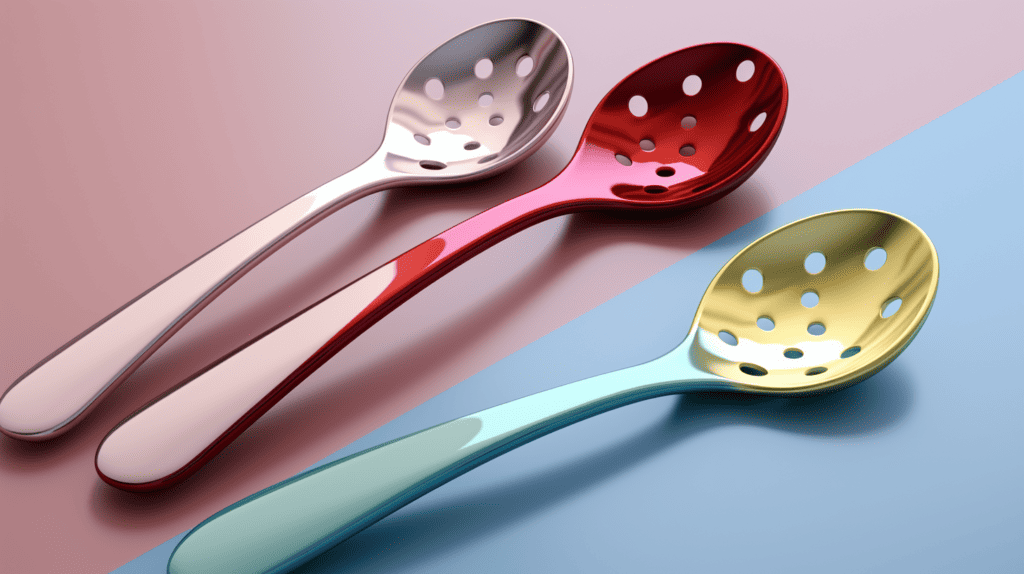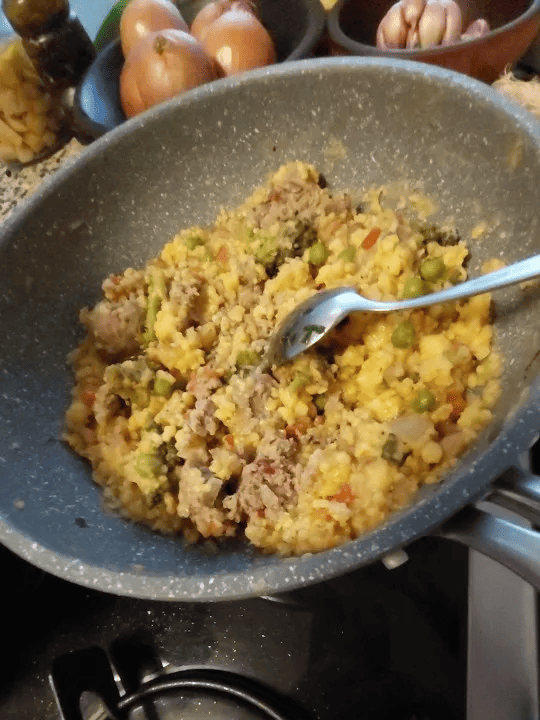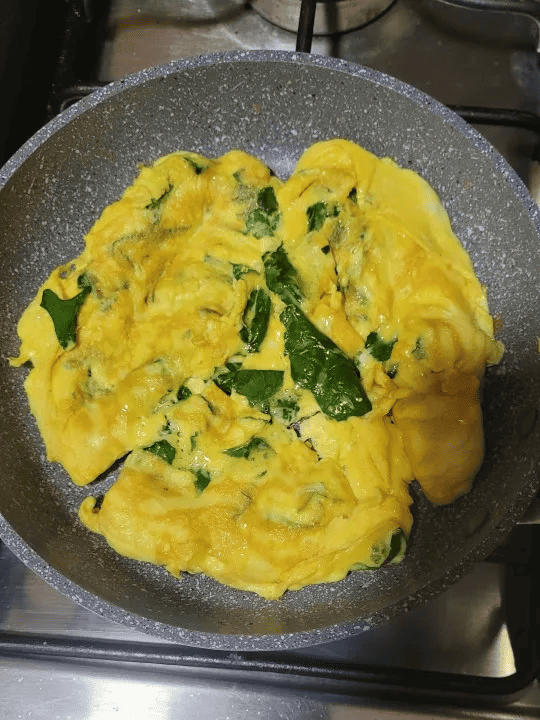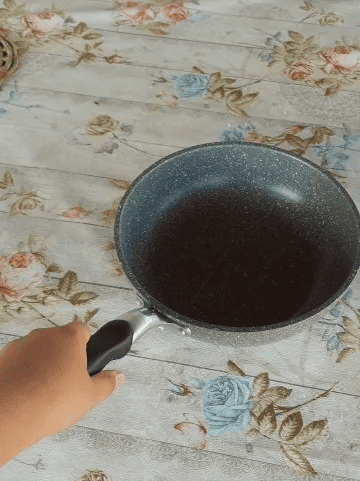
If you’ve ever cooked a meal, chances are you’ve used a slotted spoon. But what exactly is a slotted spoon? A slotted spoon is a type of kitchen utensil that is used for various cooking and serving purposes. It is typically made of metal, plastic, or silicone and has slots or holes in the bowl of the spoon, which allows liquid to pass through while keeping larger solids on top.
Slotted spoons are essential tools in the kitchen, particularly when cooking foods that need to be separated from their cooking liquids. They are commonly used to remove vegetables from boiling water, fish out fried foods from hot oil, or serve foods that need to be drained of excess moisture. The slots in the spoon’s bowl allow for efficient drainage, making it easier to separate food from liquid. Slotted spoons come in a variety of sizes and shapes to suit various cooking needs and personal preferences.
The Basics of a Slotted Spoon
If you are not familiar with a slotted spoon, it is a long-handled spoon with slots, holes, or other openings in the bowl of the spoon. These openings allow liquid to pass through while preserving the larger solids on top. In other words, a slotted spoon is used to extract solid food from residual liquid.
Slotted spoons are commonly used in cooking and serving. They are crafted with holes in order to make cooking easier and less dangerous. By using a slotted spoon, you can serve food, such as peas or carrots, straight from the pan onto a plate.
Slotted spoons can be made of a variety of materials, including metal, plastic, and wood. They come in different sizes and shapes, depending on the intended use. For example, a slotted spoon used for serving may be larger than one used for cooking.
When using a slotted spoon, it is important to choose the right size and shape for the task at hand. A larger spoon may be more appropriate for serving, while a smaller spoon may be better for cooking.
Overall, a slotted spoon is a versatile tool that can be used in a variety of cooking and serving situations. With its unique design, it allows you to extract solid food from liquid with ease and precision.
Design and Structure
A slotted spoon is a useful kitchen utensil that has slots or holes in the bowl of the spoon. This design allows you to strain liquids while keeping the solid food items on top. Let’s take a closer look at the design and structure of a slotted spoon.
Material
Slotted spoons are usually made of stainless steel, plastic, or silicone. Stainless steel is a durable and long-lasting material that is easy to clean. Plastic spoons are lightweight and affordable, but they may not be as durable as stainless steel spoons. Silicone spoons are heat-resistant and gentle on non-stick cookware, but they may not be as sturdy as stainless steel spoons.
Shape
The shape of a slotted spoon is important for its functionality. The bowl of the spoon should be deep enough to hold a good amount of food while also allowing liquid to pass through the slots. The handle of the spoon should be long enough to keep your hands away from the heat source, but not so long that it becomes unwieldy. The shape of the handle can vary from straight to curved, depending on personal preference.
Slot Design
The slots in a slotted spoon are designed to allow liquid to pass through while keeping the solid food items on top. The size and shape of the slots can vary depending on the intended use of the spoon. For example, a slotted spoon used for serving vegetables may have larger slots than a slotted spoon used for skimming fat off the top of a soup. Some slotted spoons have a combination of slots and holes to provide more versatility.
In summary, a slotted spoon is a versatile kitchen tool that can be used for straining liquids and serving solid food items. The material, shape, and slot design are all important factors to consider when choosing a slotted spoon. Choose a spoon that is made of a durable material, has a comfortable shape, and has slots that are appropriate for your intended use.
Practical Uses of a Slotted Spoon
A slotted spoon is a kitchen utensil with slots, holes, or other openings in the bowl of the spoon, which allows liquid to pass through while preserving the larger solids on top. This type of spoon is ideal for a variety of kitchen tasks, from draining liquids to serving solid foods. Here are some practical uses of a slotted spoon:
Draining Liquids
A slotted spoon is perfect for draining liquids from solid foods. For example, you can use a slotted spoon to remove boiled eggs from hot water, or to remove vegetables from boiling water. The slots in the spoon allow the liquid to drain away, leaving the solid food behind. This is particularly useful when you want to keep the solid food intact, such as when you are poaching eggs or blanching vegetables.
Serving Solid Foods
Slotted spoons are also great for serving solid foods. The slots in the spoon allow excess liquid to drain away, so you can serve the solid food without excess liquid. For example, you can use a slotted spoon to serve meatballs, fish fillets, or roasted vegetables. The slots in the spoon ensure that excess liquid is left behind, so you can serve the food in a clean and tidy manner.
When serving foods with a slotted spoon, it is important to choose the right size spoon for the job. A larger spoon is ideal for serving larger items, such as meatballs or fish fillets, while a smaller spoon is better for serving smaller items, such as peas or chopped onions.
In conclusion, a slotted spoon is a versatile kitchen tool that can be used for a variety of tasks, from draining liquids to serving solid foods. By using a slotted spoon, you can ensure that your food is served in a clean and tidy manner, without excess liquid.
Variations of Slotted Spoons
Slotted spoons come in a variety of shapes and sizes, each with its unique features and uses. Here are some of the most common variations of slotted spoons:
- Round Hole Slotted Spoon: This type of slotted spoon has round holes in the spoon end. It is perfect for draining liquids from food items such as boiled vegetables and pasta.
- Long Slot Slotted Spoon: Long slot slotted spoons have long, vertical openings that are close together. They are ideal for draining small food items like peas and corn kernels.
- Perforated Slotted Spoon: Perforated slotted spoons have small holes all over the spoon end. They are perfect for scooping solid food items like boiled eggs and potatoes from hot liquids.
- Flat Slotted Spoon: Flat slotted spoons have a flat, wide spoon end with slots. They are ideal for flipping and turning food items like fish fillets and pancakes.
- Slotted Serving Spoon: Slotted serving spoons have a larger spoon end with slots. They are perfect for serving food items like casseroles and stews, allowing excess liquid to drain back into the pot.
- Slotted Skimmer Spoon: Slotted skimmer spoons have a deep, round spoon end with slots. They are perfect for skimming the surface of liquids, removing impurities and foam.
When choosing a slotted spoon, consider the type of food you will be cooking and the size of the pot or pan you will be using. A larger spoon end may be more suitable for serving, while a smaller spoon end may be better for draining small food items. Whichever variation you choose, make sure it is made of durable materials that can withstand high temperatures and frequent use.
How to Choose a Slotted Spoon
When it comes to choosing a slotted spoon, there are a few things you should consider to ensure you get the right one for your needs. Here are some factors to keep in mind:
Quality
The quality of the slotted spoon is an important factor to consider. You want to choose a spoon that is durable and well-made so that it can withstand frequent use and last for a long time. Look for spoons made from high-quality materials, such as stainless steel or silicone, that are sturdy and won’t bend or break easily.
Size
The size of the slotted spoon is another important consideration. You want to choose a spoon that is the right size for the job at hand. If you’re planning to use the spoon for serving vegetables or other small items, a smaller spoon may be more appropriate. On the other hand, if you’re using the spoon for larger items, such as meat or pasta, a larger spoon may be necessary.
Comfort
The comfort of the slotted spoon is also something to consider. You want to choose a spoon that is comfortable to hold and use, especially if you plan to use it frequently. Look for spoons with ergonomic handles that are easy to grip and won’t slip out of your hand. Additionally, consider the weight of the spoon, as a heavier spoon may be more difficult to use for extended periods of time.
Overall, when choosing a slotted spoon, it’s important to consider the quality, size, and comfort of the spoon to ensure it meets your needs and is easy to use. With these factors in mind, you can find the perfect slotted spoon for your kitchen.
Maintenance and Care
When it comes to maintaining and caring for your slotted spoon, there are a few things you should keep in mind to ensure that it lasts for a long time.
Firstly, it is important to clean your slotted spoon after every use. This will not only help to keep it looking clean and free of any food residue, but it will also help to prevent any bacteria from growing on it. You can clean your slotted spoon by hand using warm water and soap, or you can put it in the dishwasher if it is dishwasher safe.
It is important to note that if your slotted spoon is made of wood, you should avoid putting it in the dishwasher, as the high heat and water can cause the wood to warp and crack. Instead, you should clean it by hand using warm water and soap, and then dry it thoroughly with a towel.
Secondly, if your slotted spoon is made of metal, it is important to dry it thoroughly after washing to prevent any rust from forming. You can do this by wiping it down with a towel or leaving it out to air dry.
Lastly, if you notice that your slotted spoon is starting to look worn or damaged, it may be time to replace it. A slotted spoon with any cracks or chips can harbor bacteria and may not be safe to use.
By following these simple maintenance and care tips, you can ensure that your slotted spoon lasts for a long time and remains safe to use in the kitchen.
Conclusion
In conclusion, a slotted spoon is a versatile kitchen tool that can be used for a variety of purposes. Whether you are cooking pasta, vegetables, or soup, a slotted spoon can help you easily remove solid foods from liquids without losing any of the liquid.
One of the main benefits of a slotted spoon is that it allows you to strain out unwanted bits of food or debris from your dish. This makes it an essential tool for preparing broths, soups, and stews. Additionally, slotted spoons are great for serving foods like vegetables and fruits straight from the can or jar.
When choosing a slotted spoon, it is important to consider the material, size, and shape of the spoon. Stainless steel is a popular choice for slotted spoons because it is durable and easy to clean. The size of the spoon should be appropriate for the dish you are preparing, and the shape of the spoon should be comfortable to hold and use.
Overall, a slotted spoon is an essential tool for any home cook or professional chef. With its ability to strain liquids and remove solid foods, a slotted spoon can help you create delicious and perfectly cooked dishes every time.
Frequently Asked Questions
What are the benefits of using a slotted spoon?
Using a slotted spoon has many benefits in the kitchen. It allows you to easily separate solid food from liquid, making it perfect for dishes such as soups, stews, and sauces. The slots in the spoon also allow excess liquid to drain away, leaving you with only the solid food. This makes it easier to control the amount of liquid in your dish and prevent it from becoming too watery.
How do you choose the right size slotted spoon for your needs?
The size of the slotted spoon you choose will depend on the size of the dish you are preparing. For smaller dishes, a smaller spoon will be more appropriate, while larger dishes will require a larger spoon. It’s also important to consider the depth of the dish and the amount of liquid it contains. A deeper dish will require a longer spoon to reach the bottom and scoop out the solid food.
What is the best material for a slotted spoon?
The best material for a slotted spoon is one that is durable, heat-resistant, and easy to clean. Stainless steel is a popular choice as it is strong, corrosion-resistant, and does not react with acidic foods. Silicone is also a good choice as it is flexible, heat-resistant, and non-stick.
Can a slotted spoon be used for serving soup?
While slotted spoons are primarily used for separating solid food from liquid, they can also be used for serving soup. However, a solid spoon may be more appropriate for this task as it will allow you to scoop up more liquid at once.
How does a slotted spoon differ from a solid spoon?
The main difference between a slotted spoon and a solid spoon is the presence of slots or holes in the bowl of the spoon. A slotted spoon allows liquid to pass through while preserving the larger solids on top, while a solid spoon is better for scooping up liquid.



